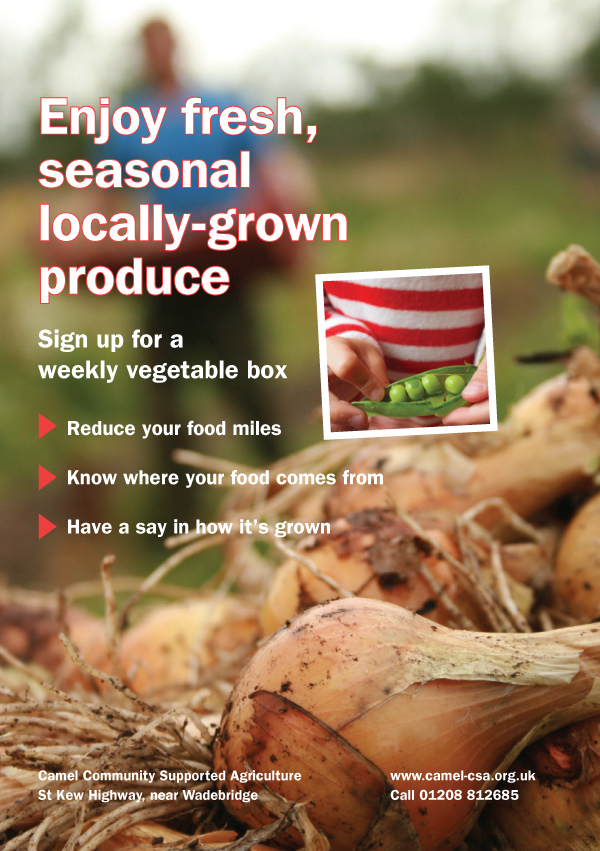
November 7, 2011
Keep an eye out for our stunning new posters designed by Emma Julian of Pickle Design in Wadebridge.
They’re helping to spread the word about our community grow-your-own project and weekly vegetable box scheme in north Cornwall.
It’s a great way to support local food and save food miles! Anyone living within a 10-mile radius of St Kew Highway is welcome to join us. We grow a range of vegetables to organic principles. The weekly boxes are ready to collect by 12 noon every Friday.
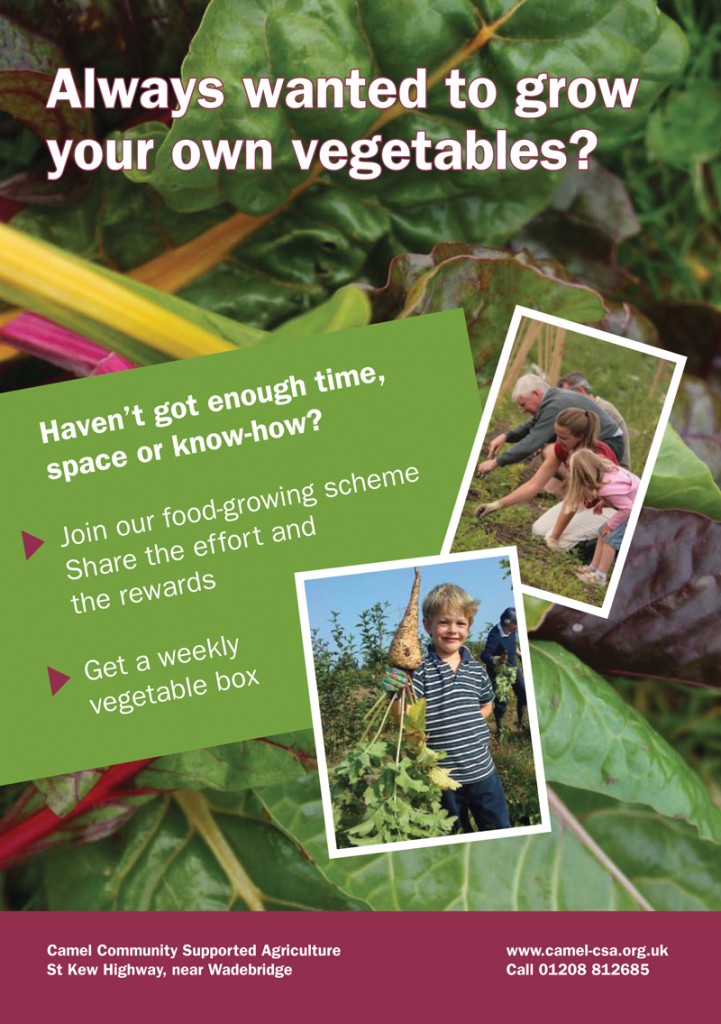
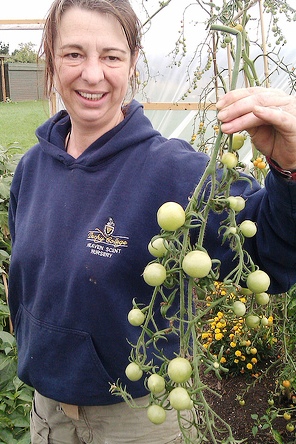
October 18, 2011
I love autumn. And there’s no better time of year to be involved in a community agriculture project.
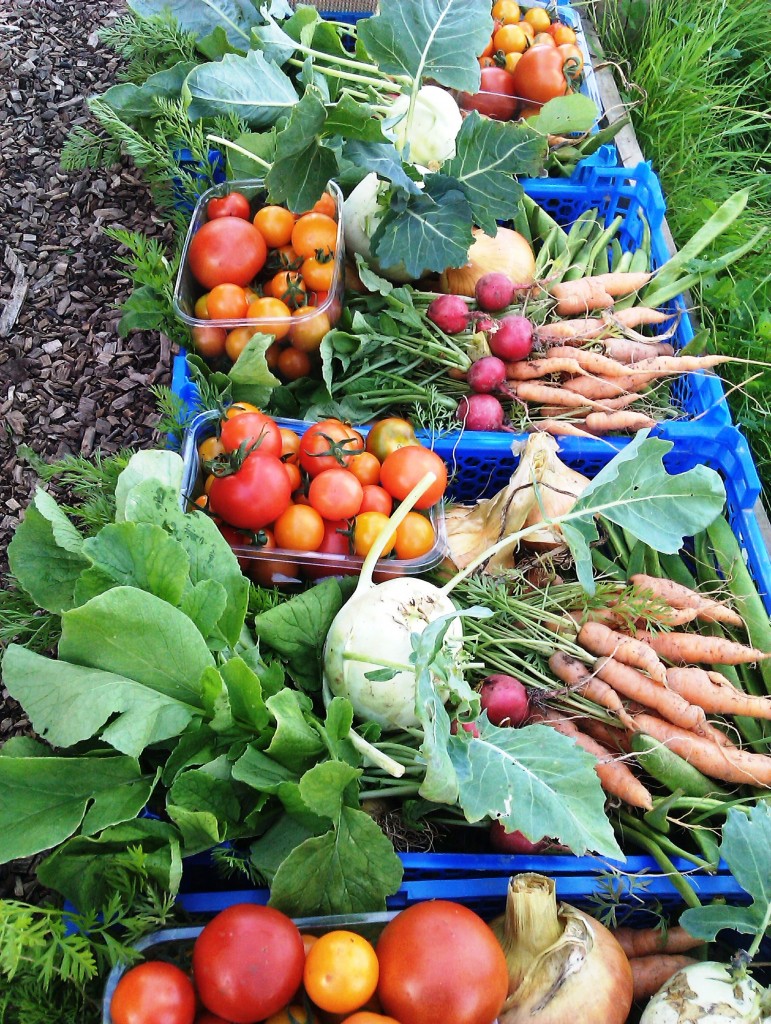
The veg boxes are bursting with our own-grown Cornish produce – including delicacies like raddichio and fresh borlotti beans.
At this moment my kitchen is filling with a tantalising spicy aroma – a mix of allspice, ginger, pepper, brown sugar, vinegar – coming from a large pan of chutney bubbling on the stove.
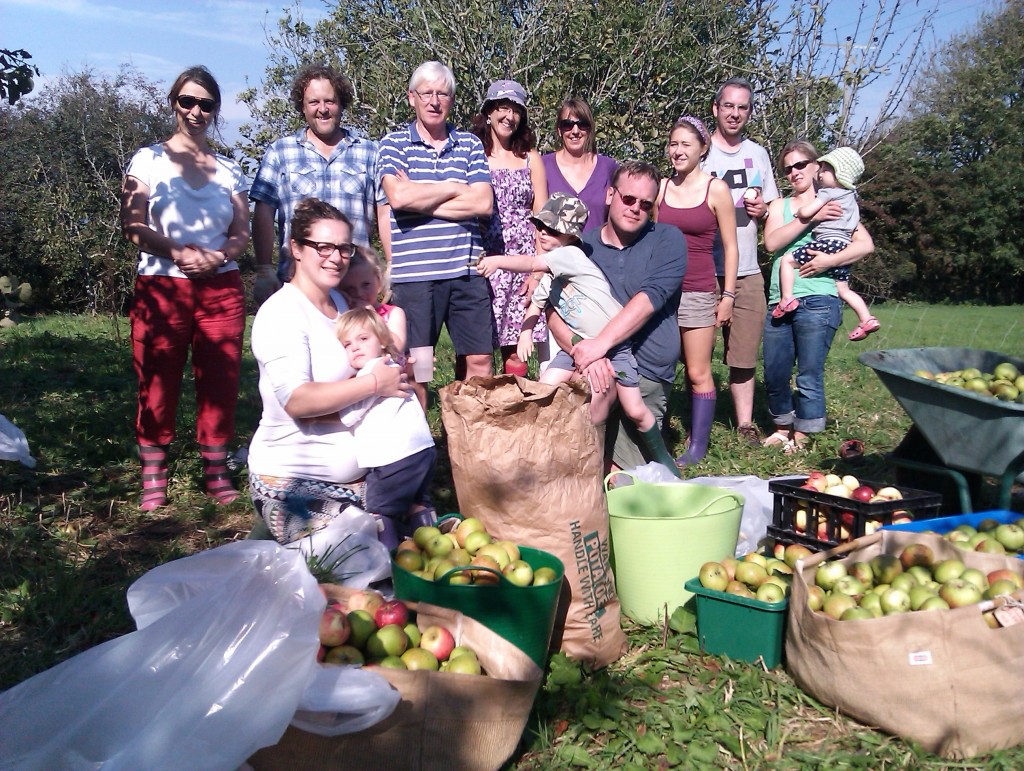
The green tomato and apple chutney is being made with our surplus produce – using unripe tomatoes from the polytunnel, apples from our adopted orchard and onions and garlic from our dry store.
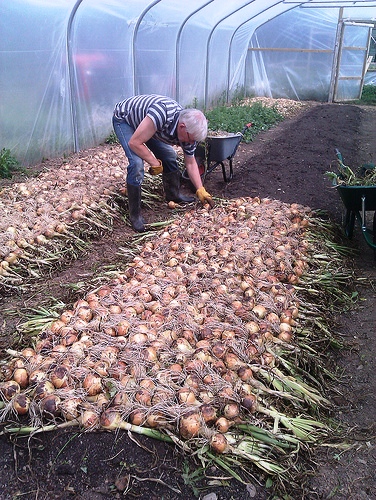
Other Camel CSA members are also busy making pickles and preserves from other vegetables. Henrietta has a garage full of runner bean chutney, turnip pickle and tomato marmalade. Cath’s about to start producing chilli oil (oh boy, do we have a glut of chillis!)
We’re not doing anything new, of course. Preserving is a traditional way of using up fruit and veg surpluses that helps provide some variety in the winter months and during the “hungry gap” in spring.
So look out for all these delicious goodies as they start appearing from Christmas onwards in our weekly veg boxes.
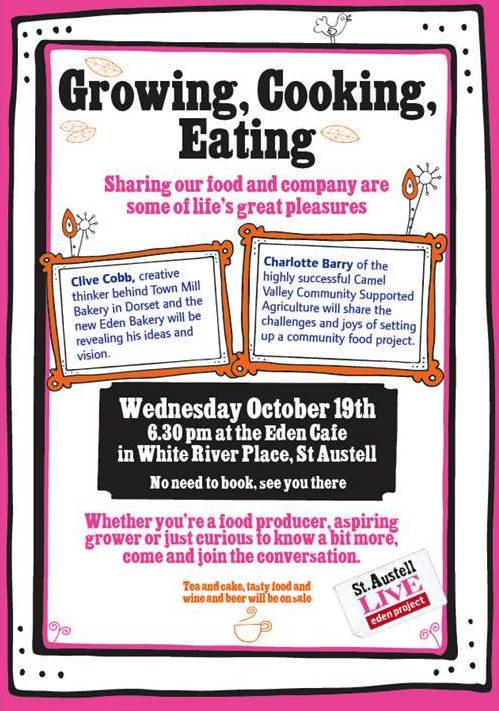
October 17, 2011
Our community supported agriculture project has a guest slot this Wednesday evening at the Eden Project’s Cafe Conversations.
Eden’s new eco cafe is in St Austell town centre. Its free event this Wednesday 19 October from 6.30 – 8.30pm is about the joys of growing, cooking and eating community food.
I’ll be talking about what we’ve learned at Camel CSA about running a community grow-your-own project – the successes and the setbacks. The other guest is Clive Cobb, creative thinker behind Town Mill Bakery in Dorset and the new Eden Bakery.
In the Eden Project’s words: “Whether you’re a food producer, aspiring grower or just curious to know a bit more, come and join the conversation.”
Why not join us? Find the Eden Project Cafe here.
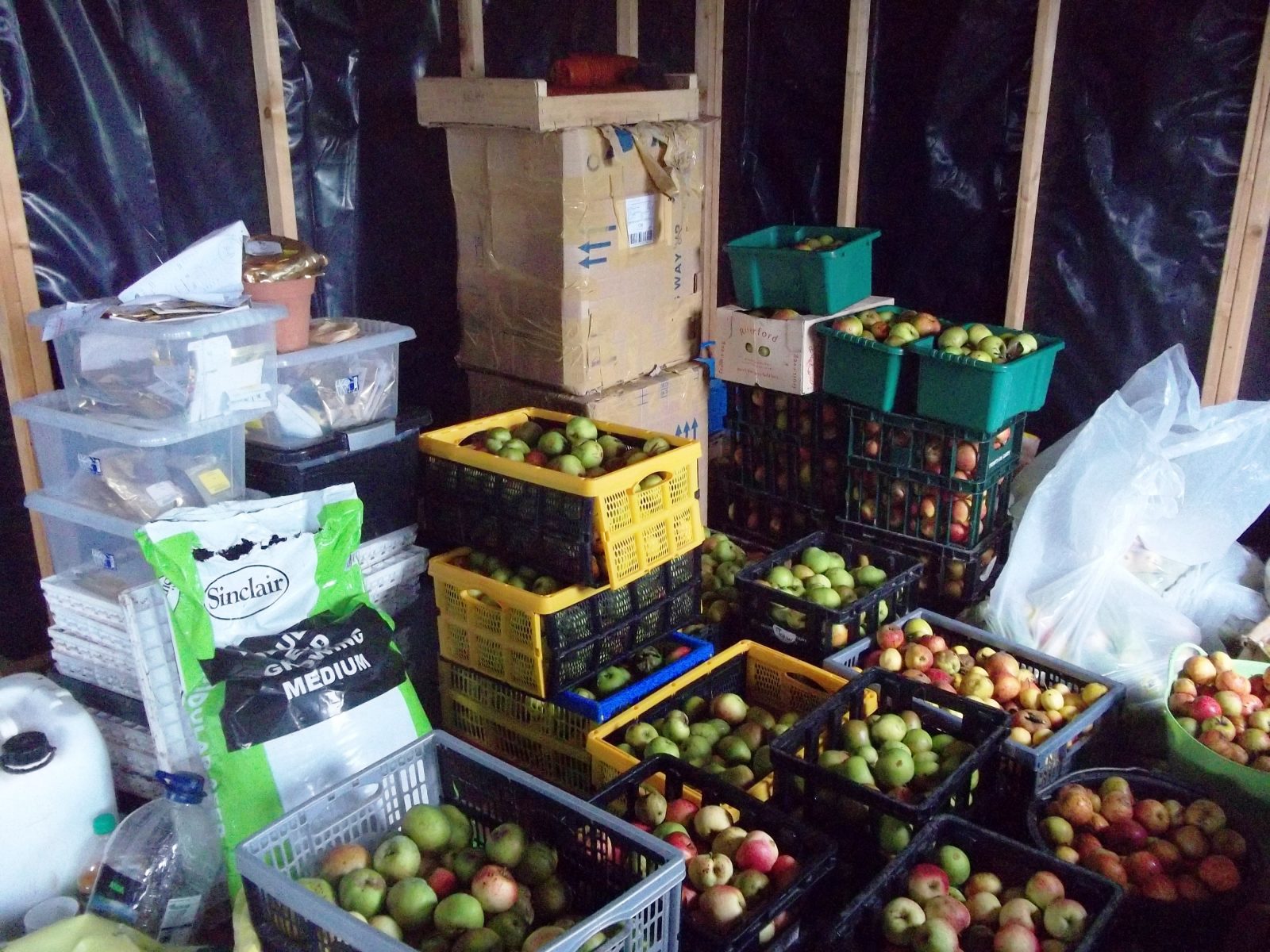
October 15, 2011
Camel CSA’s third annual Apple Day was our best ever – in spite of the Cornish mizzle. All ages pitched in to chop, crush and press around 90 litres of apple juice to share among everyone who took part.
We’ve had an abundance of apples to juice this year. Most were picked from our adopted orchard in St Mabyn, the rest came from members’ gardens.
Our team didn’t have the time or energy to press the entire mountain of fruit before the equipment had to go back to our friends at Chyan Community Field.
So we came to an agreement with the St Mabyn “Cider Boys” (don’t ask!) and we now have an extra 50 litres or so of delicious juice to share out.
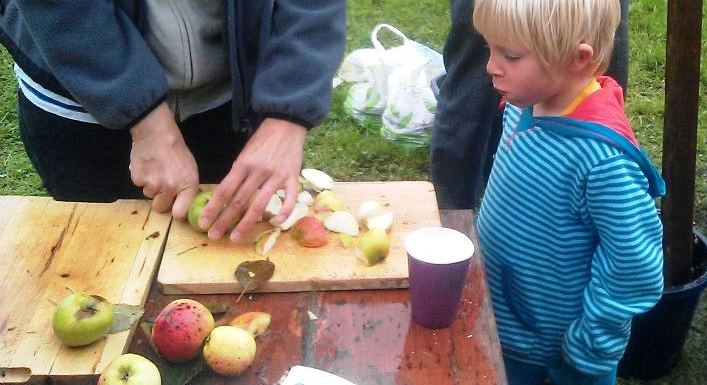
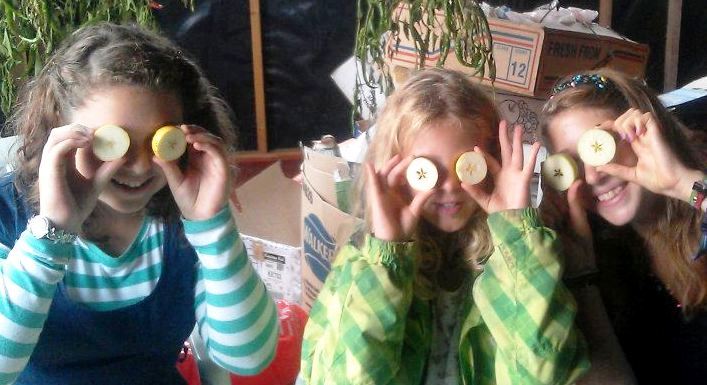
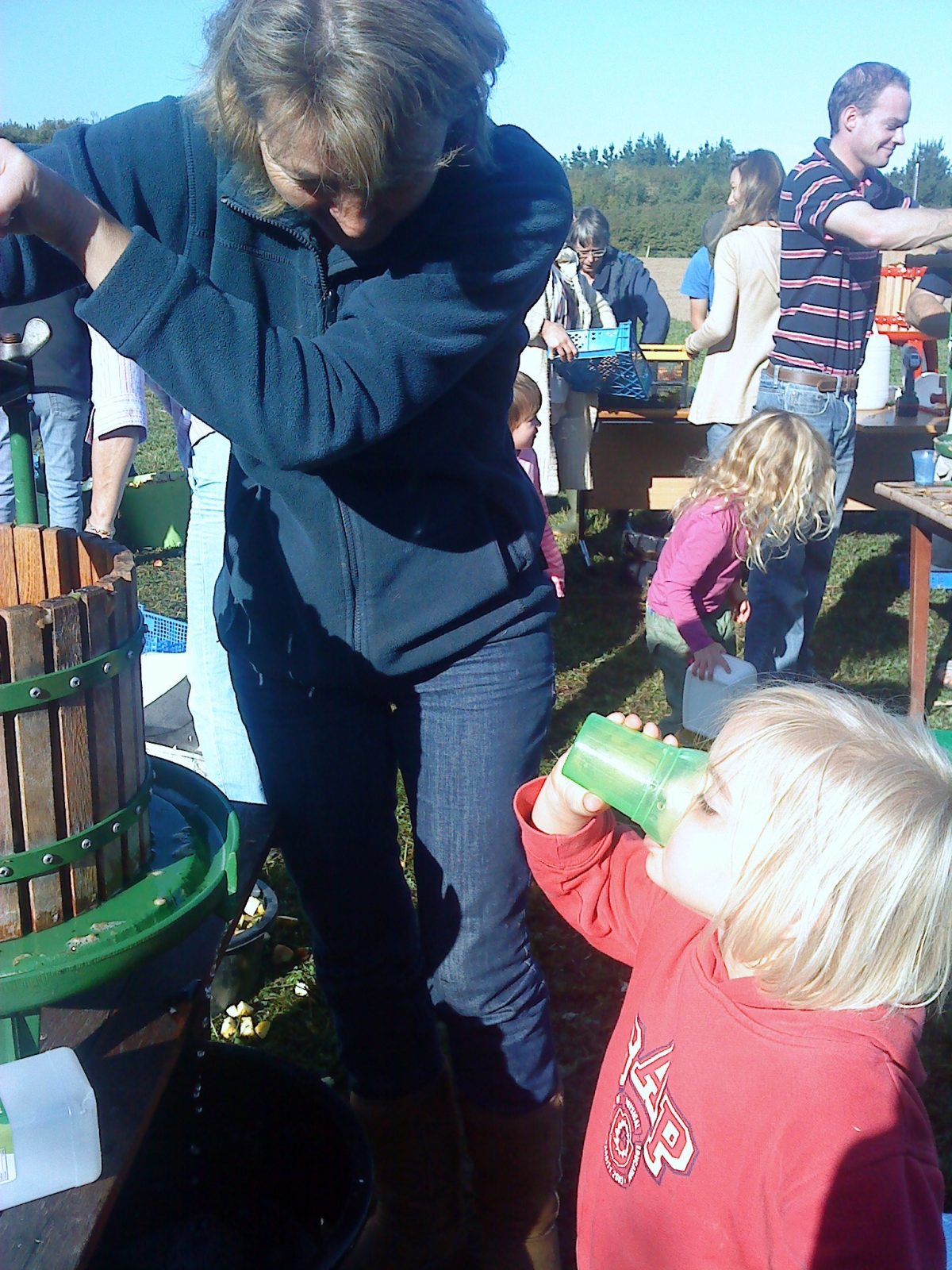
October 7, 2011
The apples are harvested and the apple press is on its way.

We’re all looking forward to our third annual Cornish Apple Day on Sunday when we’ll be producing masses of delicious fresh apple juice to share.
Come and take part in the apple pressing on our community veg-growing plot between 10am and 1pm this Sunday 9 October. Find us here at St Kew Highway near Wadebridge in north Cornwall.
If you can bring any apples and a plastic juice container with you, all the better!
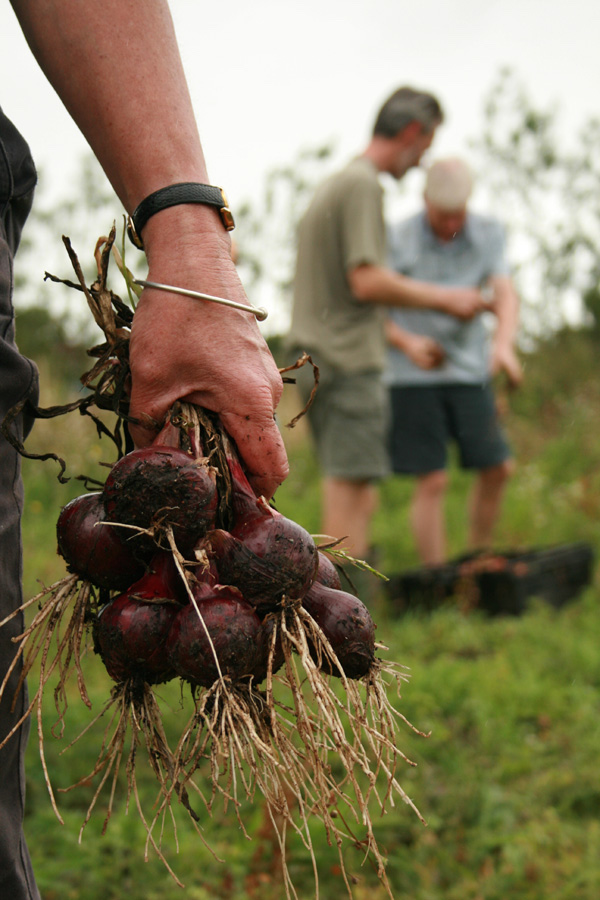
October 6, 2011
All our own produce again, apart from the potatoes. Everyone will have:
1kg potatoes (Burlerrow Farm, St Mabyn)
* runner/french beans (Camel CSA)
* beetroot (Camel CSA)
* leeks (Camel CSA)
* broccoli (Camel CSA)
* salad leaves (Camel CSA)
* tomatoes (Camel CSA)
* red onions (Camel CSA)
* garlic (Camel CSA)
* chillies (Camel CSA)
Standard boxes will also have:
* sweet peppers (Camel CSA)
* aubergines (Camel CSA)
* tuscan/curly kale (Camel CSA)
* turnips (Camel CSA)
* = grown to organic principles
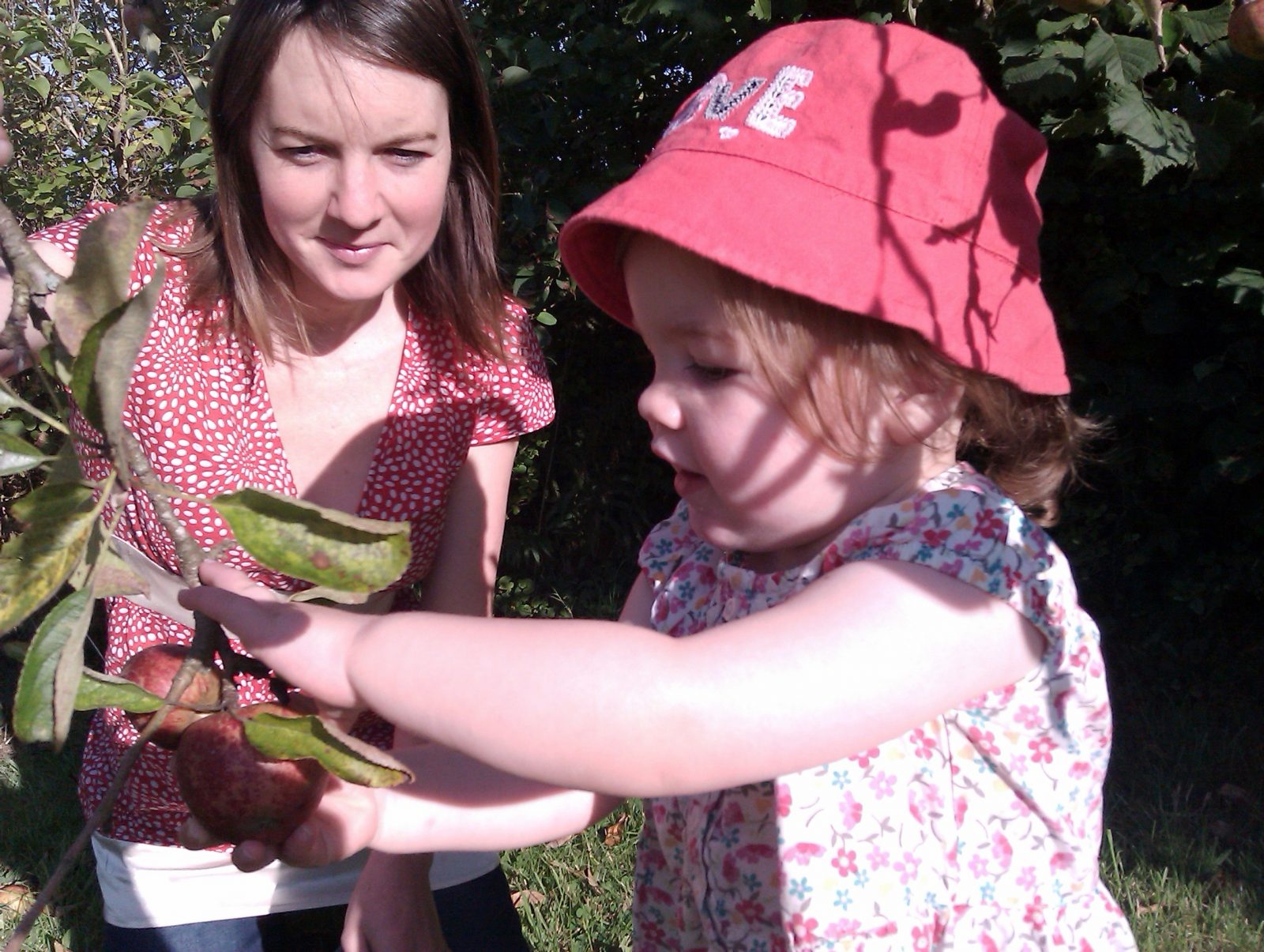
October 5, 2011
The apples are picked. We’re all set for Camel CSA’s annual apple juicing day this Sunday 9 October at our veg-growing site site in north Cornwall.
Now the fun part – everyone is welcome to come along and share our bountiful harvest. Juicing will go ahead on Sunday morning between 10am and 1pm on our community plot at St Kew Highway near Wadebridge.
This year we’re hiring an electric-powered crusher, lots of buckets and a large, Vigo hand press from Chyan Community Field near Penryn.
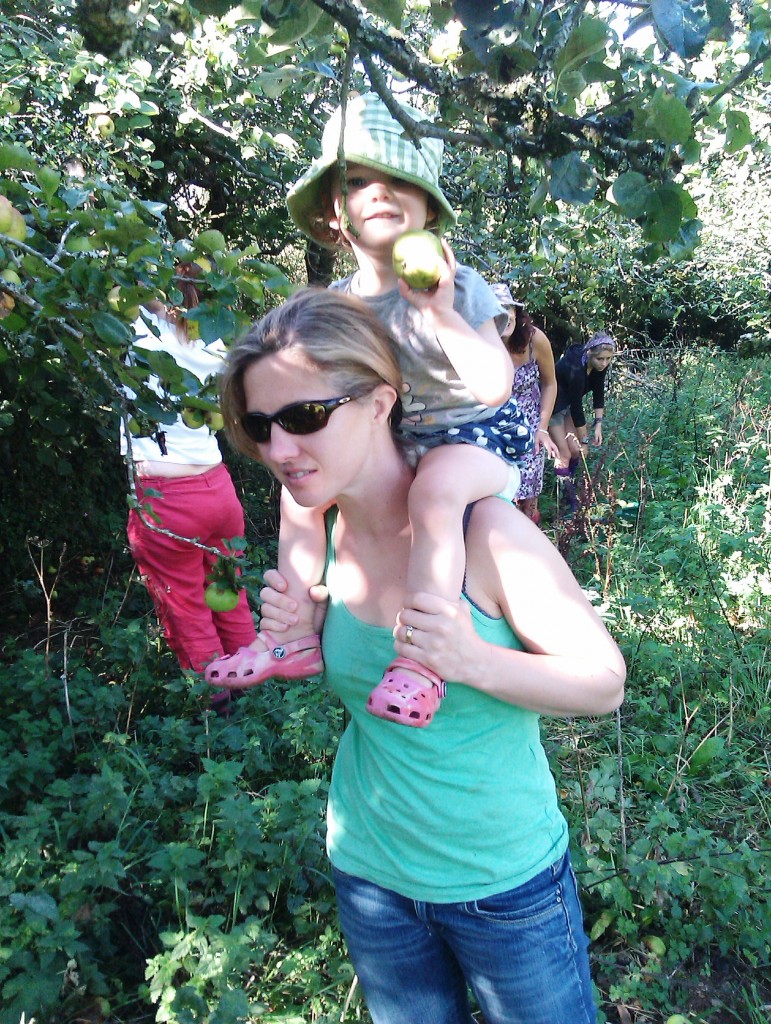
It means we’re no longer having to beg and borrow small, hand-operated presses and should make the whole operation much quicker and easier.
But it does mean we’ll need a lot of apples!
SO… we could aways use more. If you have any apples to share, or know anyone else with some to spare, please do let us know and arrange to get the fruit to us on the day.
AND…please can you all start putting aside containers for the juice. Most effective are 1-litre plastic milk containers, so the juice can be stored at home in the fridge for 48 hours or frozen. But please ensure they’re thoroughly cleaned out first!

A very enthusiastic bunch of families with young children harvested a vast number of apples in our adopted old farm orchard at St Mabyn. We managed to get the task done last Sunday – the final day of our short Indian summer.
Thanks a bunch to our apple picking and tree climbing team – Bob, Bridget, Cath, Charlotte, Dan, Danny, Gav, Geraint, Jane, Jenny, Kate, Kim, Mike S and junior members Arwen, Daisy, Finn, Hollie, Max and Seren.
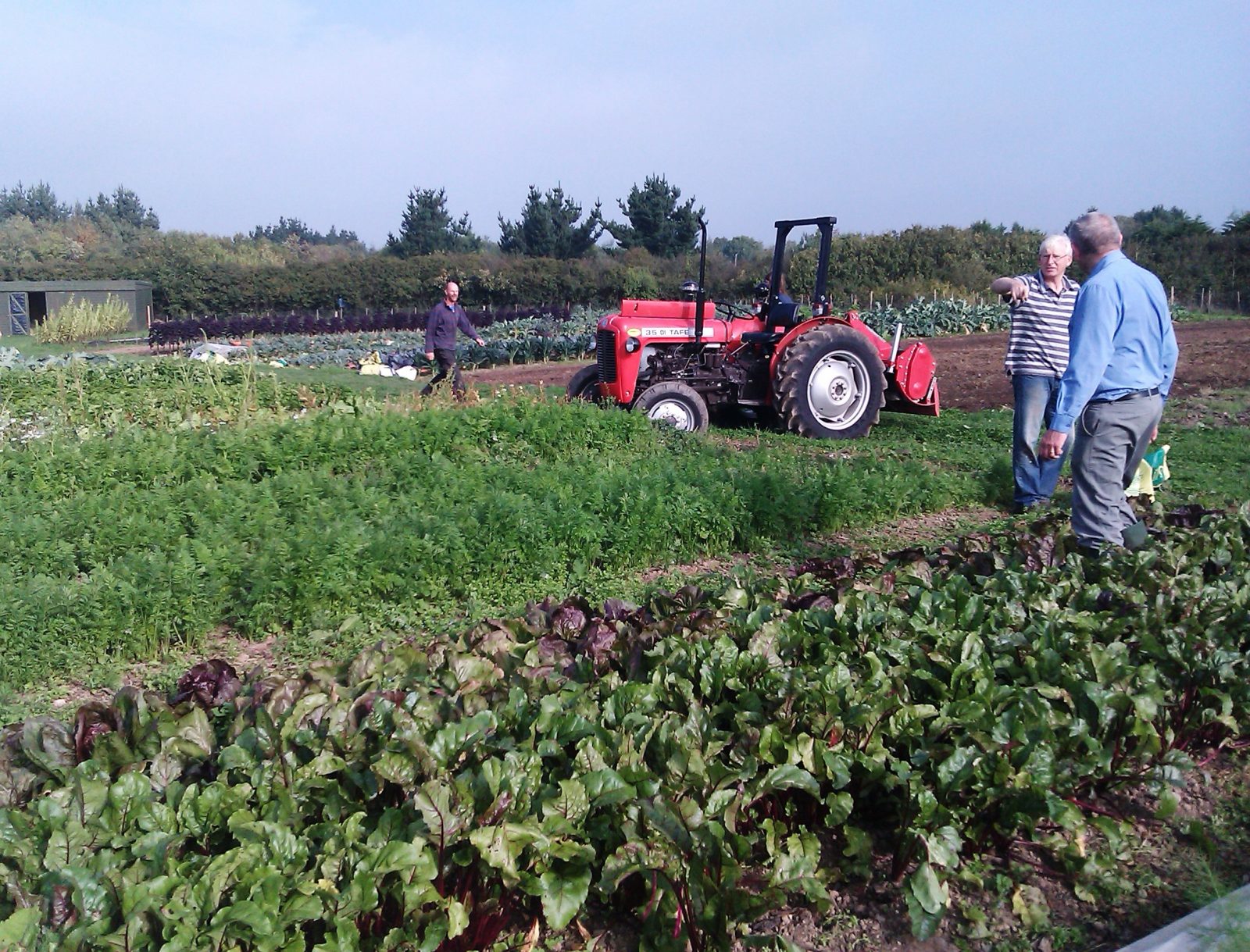
October 2, 2011
I’ve not long returned from a Soil Association conference where we looked at the future of community supported agriculture schemes in the UK, like ours in north Cornwall.
One of the recurring themes of any CSA get-together is: How do we attract volunteers? And, once they’ve started, how do we keep them on board?
Camel CSA is like any other voluntary group. We have a dedicated core membership who can be relied on a week-by-week basis to administer the project, grow the food and pick and pack the veg.
But what’s proved interesting is the total number of hours worked by volunteers – not just the regulars. And this total is always far more than we think.
We keep a tally to pass on to our funding bodies – Local Food and East Cornwall Local Action Group.
Over the last year half our members have actively volunteered at some point. They’ve contributed a total of 1,500 hours’ hard graft – the equivalent of nearly 200 working days. The highest point – equivalent to 25 working days – was in May . The lowest, not surprisingly, was in January (eight working days).
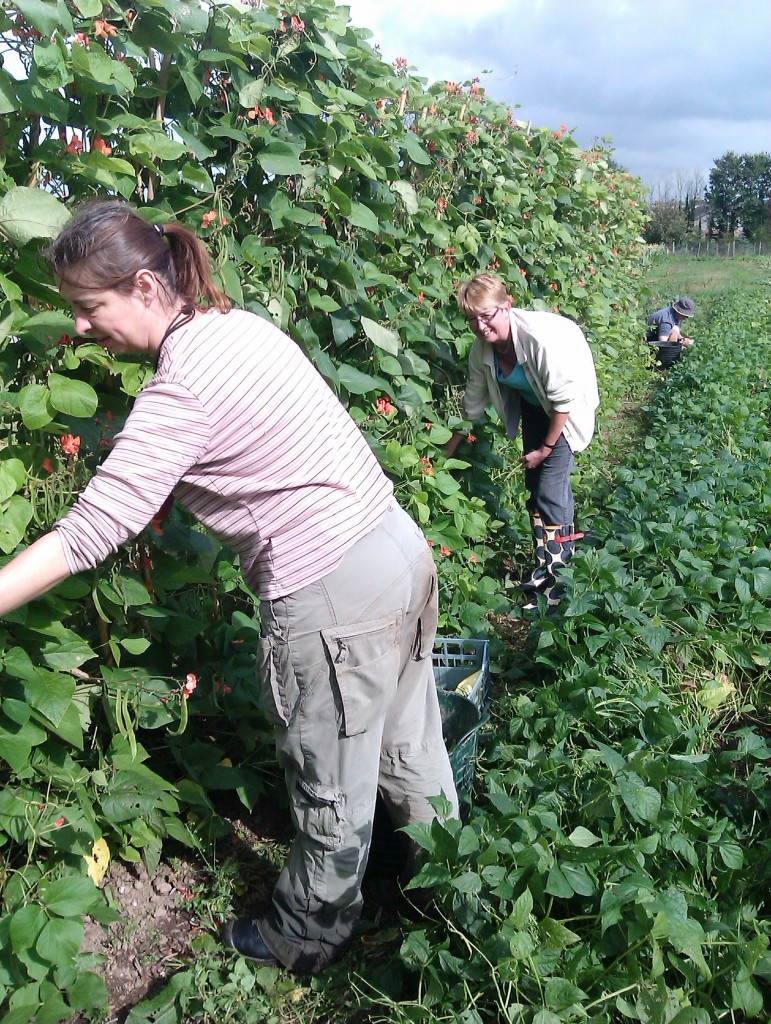
All this ties in with the work that Exeter University / Volunteer Cornwall researcher Becky Harrison is doing with us and other social enterprises in Cornwall. Her research into environmental volunteering and well-being involves looking into why people are motivated to volunteer and how they can make the most it.
All I know is that it’s important to remind volunteers how valued they are, to keep them informed, to include them in decision-making and to remind them that we’re all in it together.
Most of all, we need to remember that belonging to a CSA has all kinds of benefits. Which means making sure the dull and difficult jobs are not always done by the same people.
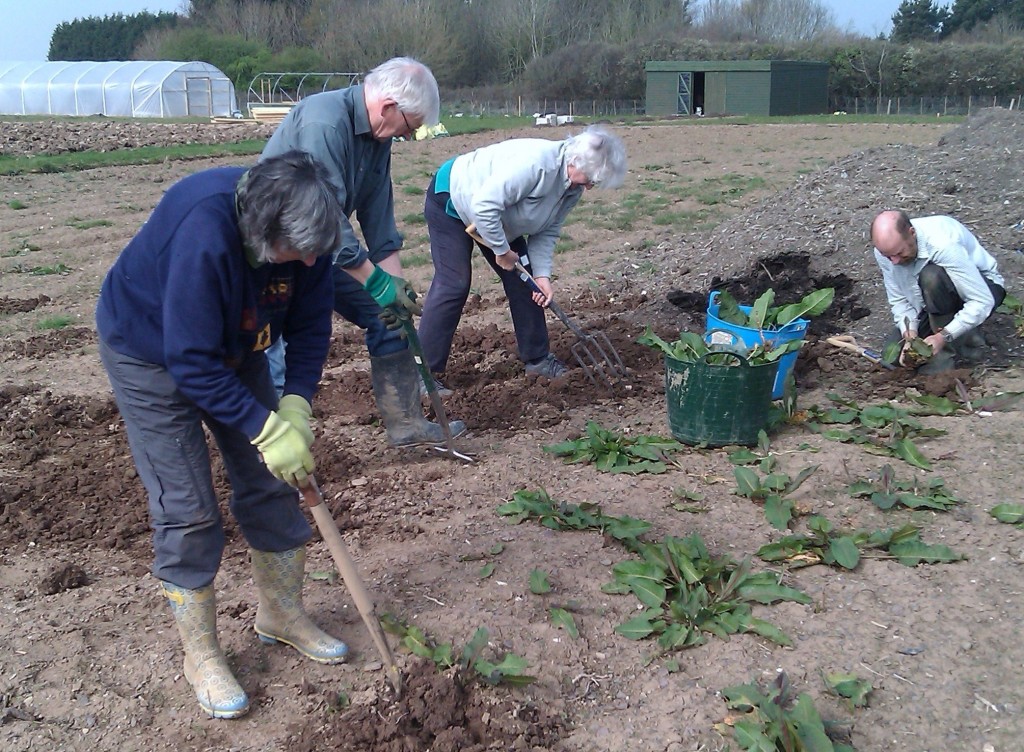
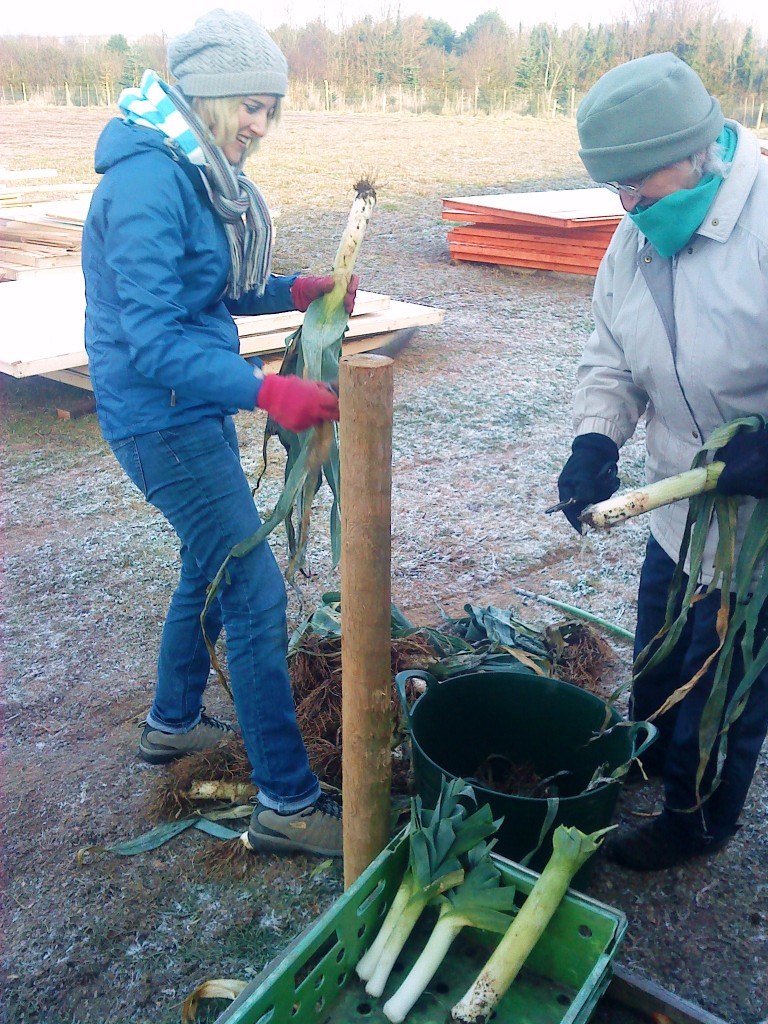
So a special mention for all the dock weed diggers, bean pickers and leek trimmers out there!
And grateful thanks to this week’s picking and packing team – Anne, Bob, Charlotte, Jax, Mike H, Mike S, Sophie, Steve, Sue, Trish F, Trish G and our expert growers Bridget and Mark N.
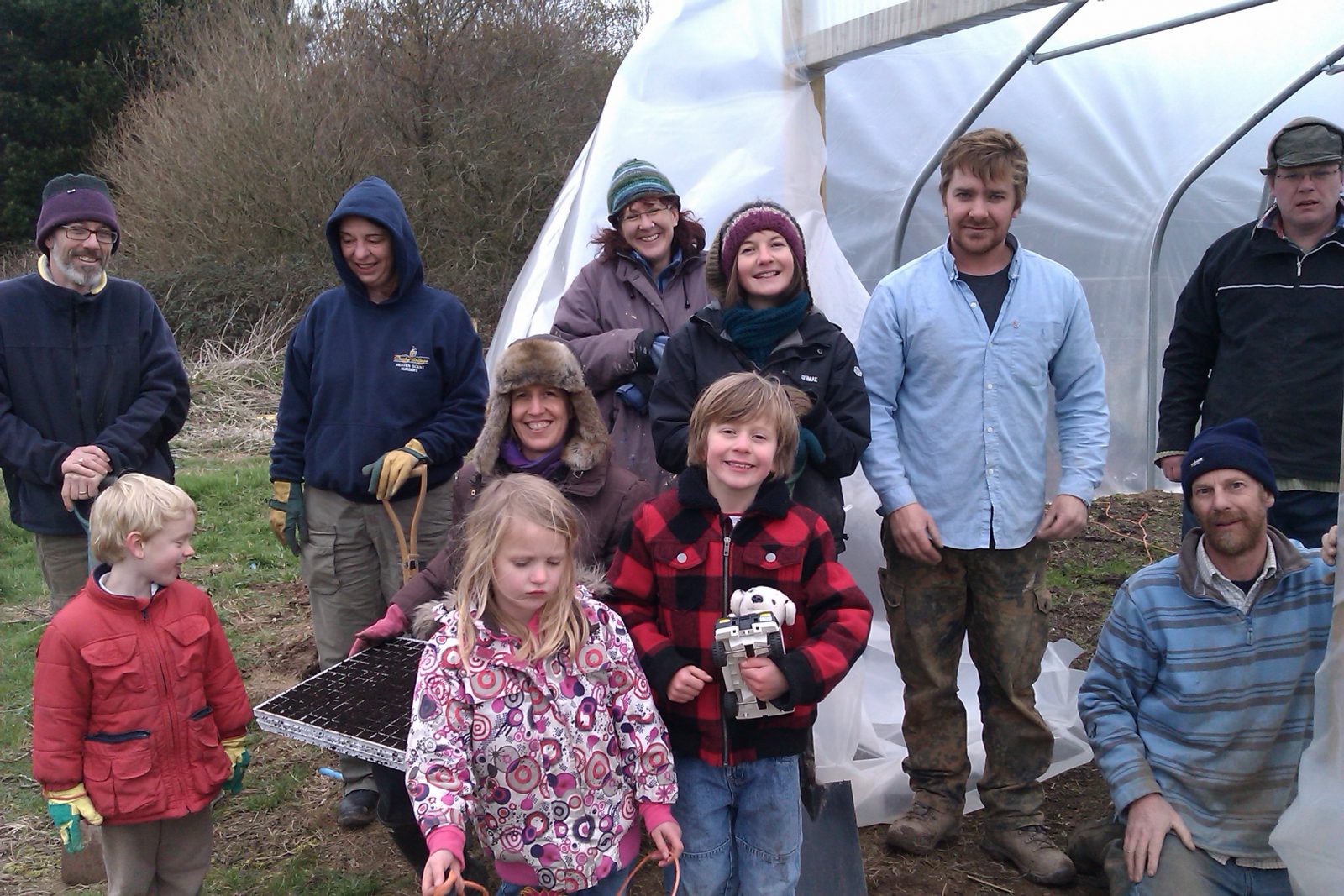
September 20, 2011
Thousands of people in England are improving their overall quality of life by getting involved in community supported agriculture.
But a lack of public awareness means that many more are missing out, according to new research from the Soil Association.
“Community supported agriculture is an exciting, dynamic, growing movement. It’s all about sharing and giving people proper access to local produce. It’s making a real difference to people’s lives,” Josiah Meldrum of Provenance told the Soil Association’s CSA conference in Bristol.
Indeed, the pace of expansion is impressive. Of the 76 fully-fledged CSA schemes in England, 66 of these got going in the last three years. Another 120 are in the process of setting up.
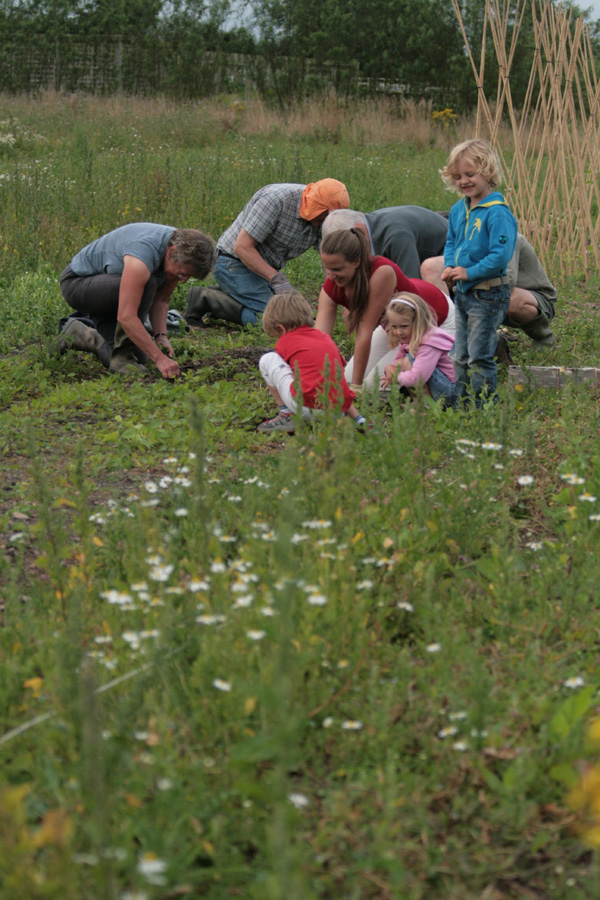
Public understanding is lacking, however. Two thirds of 1,000 shoppers who took part in a survey had never heard of community supported agriculture schemes like ours in Cornwall.
The Soil Association commissioned Provenance researchers Nick Saltmarsh and Josiah Meldrum to judge the impact of CSAs in England. They concluded there are enormous social, environmental and economic benefits for members and the wider community.
More than 70 per cent of of CSA members feel their overall quality of life has improved. Almost half believe they’re having a significant impact on the community by bringing people together.
At least three quarters are involved because they want access to healthy, high-quality, sustainably-produced food. Two thirds of them find that the vegetables provided supply nearly all their needs.
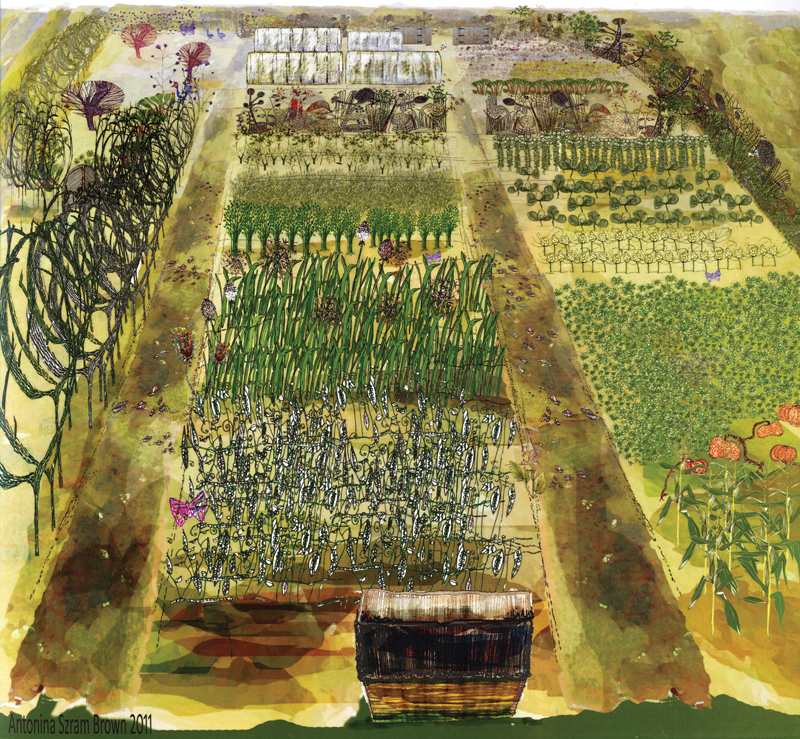
Remarks included:
Food has become interesting again…
I feel involved in the production of the food I eat and have become more connected to the land…
I feel part of something that is truly pioneering, that I am contributing in some way to different more sustainable way of living…
It makes me feel happy – at quite a deep level – that I’m playing a small part in helping such an excellent scheme to thrive…
You can have a more detailed look at the main findings on the Soil Association’s resources pages: –
The full report will be published in October.

September 15, 2011
This illustration of Camel Community Supported Agriculture’s grow-our-own veg plot in Cornwall is by the very talented artist Antonina Szram Brown.
Antonina and her husband Jeremy run St Kew Harvest Farm Shop, specialising in good food and fresh produce that includes their own homemade artisan bread. They’re both deeply committed to making local food work in our part of north Cornwall.
Camel CSA rent two acres of land from the Brown family at St Kew Highway near Wadebridge. Jeremy is one of the local growers who supplies top-quality produce for our weekly veg box scheme.


